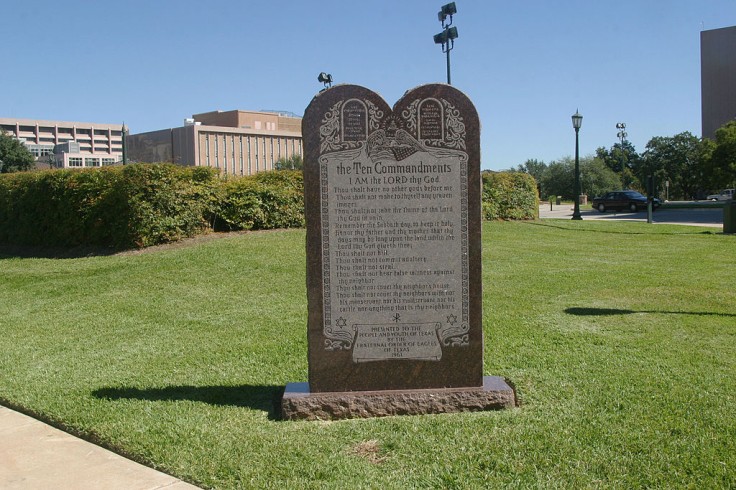
Louisiana has become the first state to require the display of the Ten Commandments in every public school classroom, as part of a conservative agenda driven by the GOP-led Legislature under new Governor Jeff Landry.
The law, signed by Landry on Wednesday, mandates a poster-sized display of the Ten Commandments in all classrooms from kindergarten to state-funded universities, in a large, easily readable font.
Louisiana First State to Mandate Displaying Ten Commandments
Critics argue the law is unconstitutional and plan to challenge it in court, while supporters claim it has historical significance, describing the Ten Commandments as "foundational documents of our state and national government."
The posters, which will include a context statement about their historical role in American education, must be installed by 2025 and will be funded through donations, not state resources.
The law permits but does not require, the display of the Mayflower Compact, the Declaration of Independence, and the Northwest Ordinance in K-12 schools.
Following the law's signing at Our Lady of Fatima Catholic School in Lafayette, civil rights groups vowed to file accusations, debating whether the measure disregards the separation of church and state and undermines religious freedom.
State Senator Royce Duplessis obstructed the bill, emphasizing the importance of maintaining church-state separation. The law's passage reflects a broader conservative shift in Louisiana politics, facilitated by a Republican supermajority in the Legislature and control of all statewide elected positions.
State House Representative Dodie Horton, who authored the bill, defended it by asserting that the Ten Commandments underpin Louisiana's laws and moral code. Similar legislative efforts in states like Texas, Oklahoma, and Utah have not succeeded due to constitutional challenges.
Legal disputes over displaying the Ten Commandments in schools are not new. In 1980, the U.S. Supreme Court struck down a similar Kentucky law, ruling it opposed the establishment clause of the Constitution by serving a religious purpose without a secular one.
Read Also: Judge Temporarily Blocks Biden's Title IX Rule Expanding LGBTQ Protections for Students in 6 States
Ten Commandments To Be Displayed in Every Public School Classroom
Critics argue the law may face accusations of opposing the separation of church and state, while supporters claim it has historical importance, portraying the Ten Commandments as foundational documents.
Civil liberties groups plan to challenge the law in court, stating it imposes religious doctrine in public schools, violating First Amendment rights.
The law requires displays to include a contextual statement on the Ten Commandments' historical role in American education. These displays, to be funded by donations, must be installed by 2025. The law also allows but does not mandate the display of other historical documents in K-12 schools.
Similar bills have been proposed in other states, but only Louisiana has enacted such a measure, reflecting a conservative shift under Governor Landry amid Republican dominance in the state's political landscape.
The Ten Commandments
The Ten Commandments states the following:
- Do not worship other gods before Me.
- Do not create or worship idols.
- Do not misuse the name of the Lord your God.
- Observe the Sabbath and keep it holy.
- Honor your parents.
- Do not commit murder.
- Do not commit adultery.
- Do not steal.
- Do not lie or give false testimony against others.
- Do not covet what belongs to others.
Related Article: Los Angeles School District Votes to Ban Cell Phones in Schools To Boost Student Focus